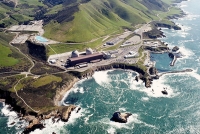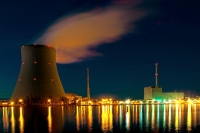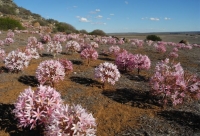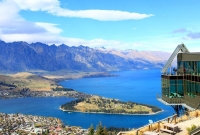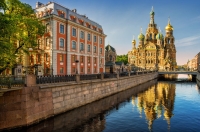
This section covers historical highlights of people in Asia, South Pacific, Australia and New Zealand. It exams what can be done to make the future better than the past, including how plentiful, reliable energy can help. Contributions are from people in all walks of life.
Vijay Jayaraj, Research associate, Cornwall Alliance for the Stewardship of Creation: Environmental problems have become part of our everyday lives. There isn’t a news website homepage that does not highlight news related to our environment, and environmental issues have become central themes of major elections. But we have reached a point where we no longer understand the role of man in the environment around us. What brought us here? Humans and the environment are inseparable. Whether you are a theist or an atheist, you cannot be disconnected from the environment. All of human civilization’s needs come from the environment.
Ajeet Bhargava: Tribute to Vikram Sarabhai - "Behind every creation, there's always the Creator. So, it doesn't matter, whether it is the time of the Mahabharata or today's India. Never Forget God !!!"
Robert Bryce, author of “Smaller Faster Lighter Denser Cheaper”: A staggering 18.4 million North Koreans, some 70 percent of the country’s population, do not have access to electrical power. Indeed, by restricting electricity use, Kim has turned it into a weapon. In February, as sanctions on his country began pinching his regime’s finances, rather than increase the supply of electricity to North Koreans, he began selling it to China.
Gesellschaft fuer bedrohte Voelker, Associazione per i popoli minacciati: On June 25. and 26. 2011, Halabja's mayor, Khder Kareem, will be awarded with the Peace Prize of the International Peace Bureau (IPB) of Italy. During the award conference, in which Khder Kareem will be present, a cooperation agreement will be signed between the university of Halabja and the department for oriental studies of the Ravenna section of the university of Bologna. The Kurdish mayor will also use the opportunity to commemorate the tragic death of 5,000 people through the attacks with poison gas by the Iraqi army on March 16, 1988. The world should work for peace and equal respect for all people as is done with the quota system in the government in Kurdistan.
Vijay Jayaraj, M.Sc. Environmental Science. Research Associate for Developing Countries for the Cornwall Alliance for the Stewardship of Creation: He describes the history of air pollution in developing economies in the United States, United Kingdom and India and explains the difference between discussions about air pollution and claims of man-made climate change. Extreme environmentalists mainly from the United States and Europe demand that India abandon use of fossil fuels. They have their own selfish self-interest at heart. No concern for the economic well being of India and similar countries.
Tony Abbott: Former Prime Minister of Australia: Discusses the importance of being able to doubt in many areas of life in the western world, in particular regarding the topic of man-made global warming, man-made climate disruption, man-made climate change or whatever the new name they give it is and the ability to doubt their claims they can control and reverse all changes in Earth's climate.
Ved Nanda, Director of the Ved Nanda Center for International and Comparative Law at the University of Denver Sturm College of Law: I still vividly recall the day in early August 1947, a few days before the independence and partition of India and the birth of Pakistan, when my mother and I had to flee for our lives. Gujranwala was majority Muslim, with a sizeable population of Hindus and Sikhs at that time, and the communities lived peacefully, participating in each other’s social, cultural and religious lives. But all that changed in a hurry. A Muslim friend advised us: "Leave now, leave immediately. Save your lives." On the 70th anniversary of India’s partition, it is perhaps this experience which has given me the lifelong purpose to work for peace and human rights, especially for refugees.
Chaitanya Mallapur, IndiaSpend:India’s foodgrain production rose five times over six decades, according to 2016 government data, the latest available. But with the average Indian farm half as large as it used to be 50 years ago and yields among the lowest in developing economies, both the agriculture sector and farmers have been driven to the brink, shows an IndiaSpend analysis.
The Times of India, Vishwa Mohan: India's foodgrain production for the 2016-17 crop year is estimated at record 275.68 million tonnes. The government on Wednesday revised its previous figures upward by 2.3 million tonnes and came at the new figure which is over 4 per cent higher than the previous record production achieved in the country during 2013-14. The production in 2016-17 is significantly higher by 24.12 million tonnes (9.59 per cent) than the output of 2015-16 which was a drought year.
Robinder Sachdev is founder president of The Imagindia Institute. Mr. Sachdev is a world acknowledged authority across geopolitics, public and economic diplomacy, image and campaign management, cross cultural communications, and affairs of the Indian Diasporas. Mr. Sachdev has lived and worked in the U.S., Russia, Kazakhstan, and Dubai, and is now based at New Delhi. Mr. Sachdev is also Trustee of the Children's Book Trust, India's oldest national children's organization founded by the legendary political cartoonist, Shankar.


